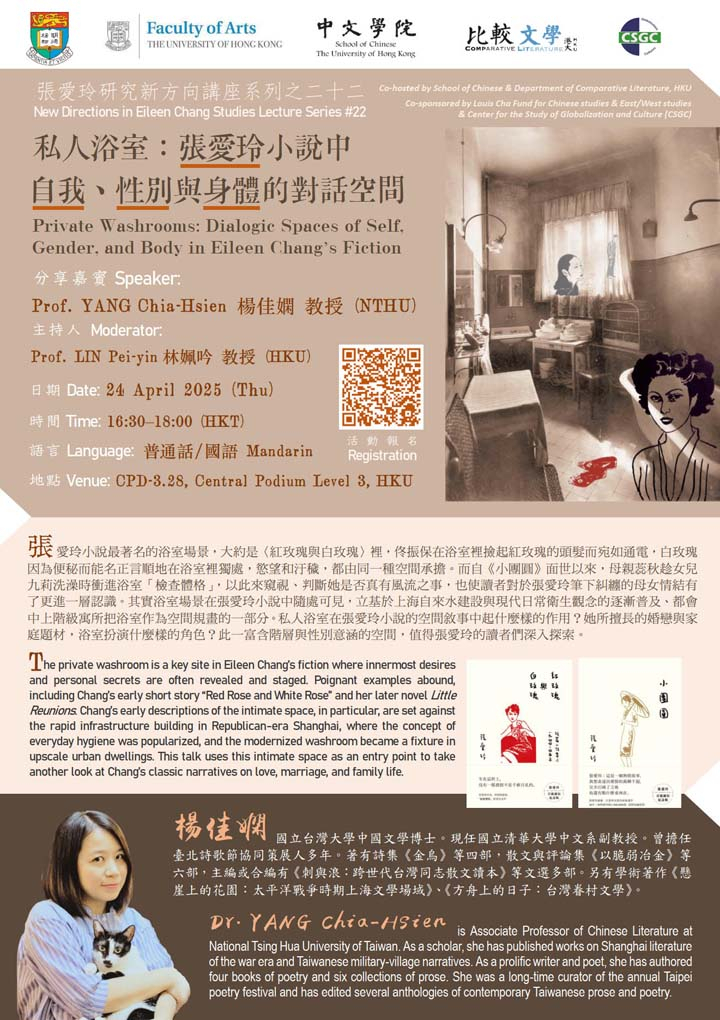[活動回放]私人浴室:張愛玲小說中自我、性別與身體的對話空間 Private Washrooms: Dialogic Spaces of Self, Gender, and Body in Eileen Chang’s Fiction

****************************************************************
張愛玲研究新方向講座系列之二十二 New Directions in Eileen Chang Studies Lecture Series #22
Co-hosted by School of Chinese and Department of Comparative Literature, HKU
Co-sponsored by Louis Cha Fund for Chinese studies & East/West studies in the Faculty
& Center for the Study of Globalization and Culture (CSGC)
私人浴室:張愛玲小說中自我、性別與身體的對話空間
Private Washrooms: Dialogic Spaces of Self, Gender, and Body in Eileen Chang’s Fiction
分享嘉賓 Speaker:
楊佳嫻 教授 Prof. YANG Chia-Hsien
(Dept. of Chinese Literature, National Tsing Hua University)
主持人 Moderator:
林姵吟 教授 Prof. LIN Pei-yin
(School of Chinese, HKU)
日期時間 Date & Time: April 24, 2025 (Thu) 16:30-18:00pm (HKT)
語言 Language: 普通話/國語 Mandarin
地點 Venue: CPD-3.28, Central Podium Level 3, The Jockey Club Tower, Centennial Campus, HKU
授課模式 Delivery Mode: Face-to-face & Online
報名 Registration:
https://hku.au1.qualtrics.com/jfe/form/SV_bfkjOYEhy9PjQKa
摘要 Abstract:
講者簡介 About the Speaker:
Notice:
1) The seminar will be conducted primarily in a face-to-face mode; Those who cannot attend the seminar in-person could apply for online participation (via Zoom) with justifications;
2) All those who would like to attend the seminar are required to register online (Click HERE) on a first-come, first-served basis;
3) Email of confirmation will be sent to the registered email addresses and participants have to show the screenshot or print-out version of the email for entry of the seminar venue;
4) Walk-in or late-comers will not be allowed for entry of the seminar venue unless situation allows.
ALL are welcome*
*Pre-registration (Click HERE) is requested.








